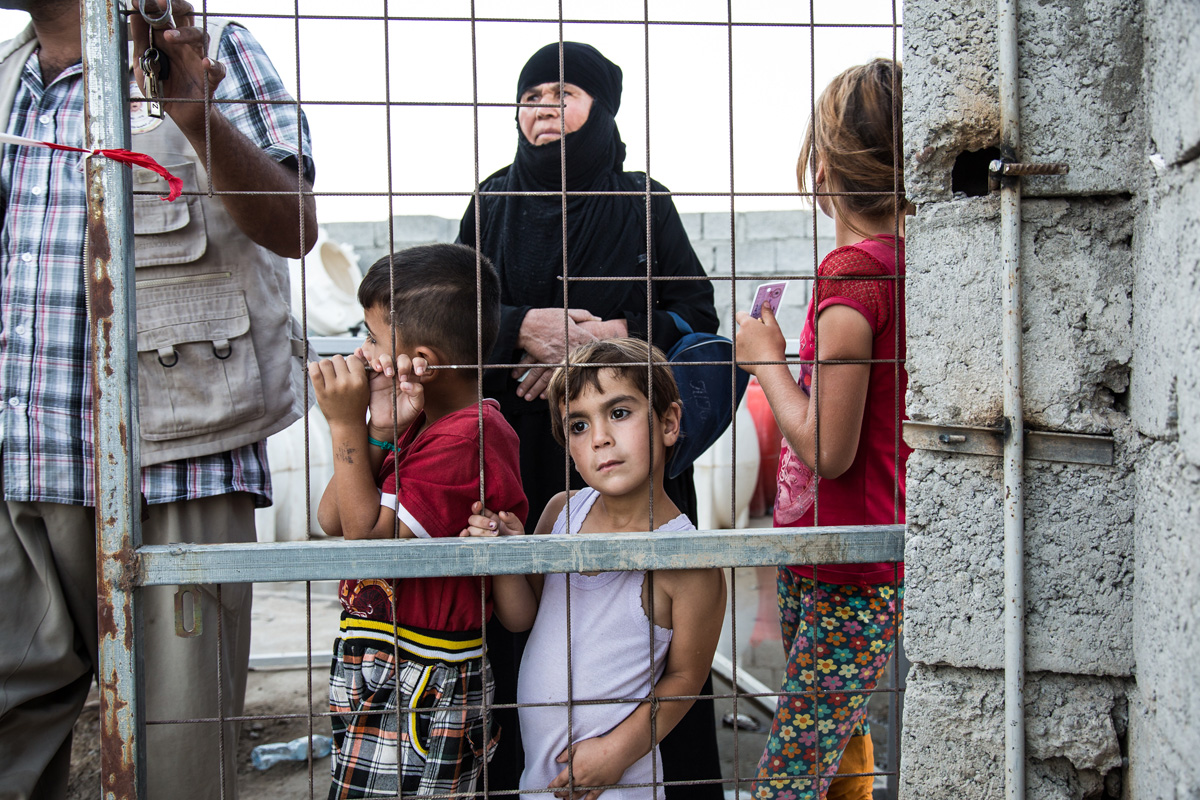Blog Home > early warning project
-
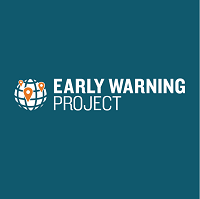
State of the World: Mass Killing in 2020
June 17, 2021
The Early Warning Project uses patterns from past instances of mass killing to forecast when and where new mass killing episodes are most likely to happen in the future. Each year we update our list of countries experiencing state- and nonstate-led mass killing. The following report compiles our determinations for ongoing mass killings in 2020.
-
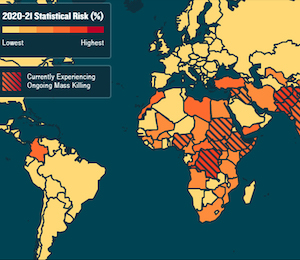
Launching New Early Warning Risk List
March 12, 2021
In late February, the Early Warning Project launched its latest early warning risk list, identifying Pakistan, Afghanistan, and the Democratic Republic of the Congo as most likely to experience a new mass killing in 2020 or 2021.
-
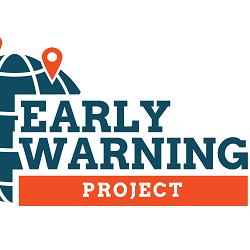
Comparison Survey Launch: Which countries are most likely to experience new mass killing in 2021?
December 1, 2020
To help the Simon-Skjodt Center’s Early Warning Project forecast atrocity risk in 2021, please participate in our annual pairwise comparison survey, an innovative opinion aggregation method, which presents countries head-to-head and asks respondents to choose which is more likely to experience a new mass killing in the new year. The survey will run for one month, until December 31, 2020.
-

Call for Applicants: Early Warning Project Fellowship on Indonesia
October 13, 2020
The US Holocaust Memorial Museum’s Simon-Skjodt Center for the Prevention of Genocide seeks applications for a fellowship to assess risks of mass atrocities in Indonesia.
-
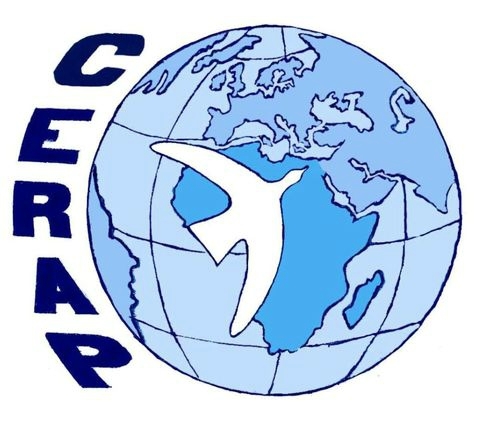
New Report: Efforts Towards Peace in Côte d’Ivoire’s Presidential Elections
September 10, 2020
With just seven weeks until Cote d'Ivoire's presidential election, supporters of political parties, security forces, and militias have clashed in the streets, resulting in fatality estimates from seven to 26. A new report from a Simon-Skjodt Center fellow analyzes the evolving risks of mass atrocities in the country and the steps that domestic and international actors have taken to help prevent large-scale violence around the upcoming elections
-
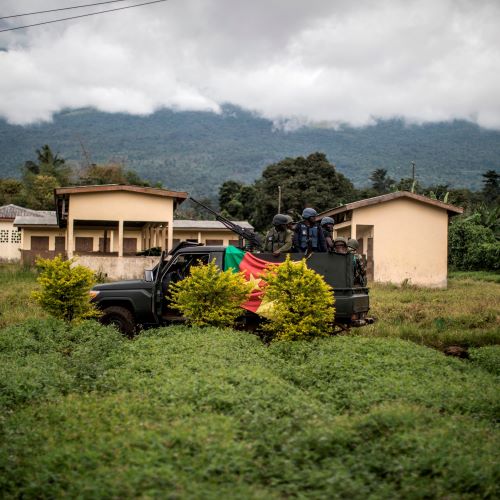
Civilians at Risk in Cameroon
June 10, 2020
When English-speaking civilians in Cameroon began protesting discriminatory government policies in 2016, government security forces cracked down violently. With more than 3,000 Cameroonians killed and 700,000 displaced since the beginning of the crisis, the violence shows no signs of abating, and the global coronavirus pandemic further complicates life in the Anglophone regions of the country.
-

Data for Peace and Security: The Early Warning Project Connects with Innovators Worldwide
May 13, 2020
At a recent workshop, Data for Peace and Security: leveraging the opportunities of data-driven innovation and technological developments, four key themes emerged. Today, policymakers are increasingly embracing data science and new technologies, recognizing the critical role they can play in promoting peace and improving security. As the adoption of these tools accelerates, renewed attention is needed to the challenges of communication, security, and ethics.
-

State of the World: Mass Killing in 2019
April 8, 2020
No new mass killing episodes began in 2019, according to the latest review by the Early Warning Project. This good news, however, is tempered by the historically high number of ongoing mass killings: 20 separate episodes as of the end of 2019, perpetrated by 10 states and 10 nonstate groups, in 15 countries.
-

The Private Sector and Atrocity Prevention: Lessons from Côte d’Ivoire
March 31, 2020
The private sector in Côte d'Ivoire has a critical role to play in ensuring a peaceful electoral process through 2020.
-
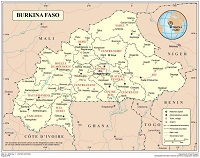
Survey Results: Burkina Faso Tops Risk List for Mass Killing in 2020
February 6, 2020
For the seventh year in a row, the Early Warning Project ran a comparison survey in December to solicit opinions on countries' relative risks for new mass killing. In this post we highlight the highest-risk country according to survey respondents: Burkina Faso.

